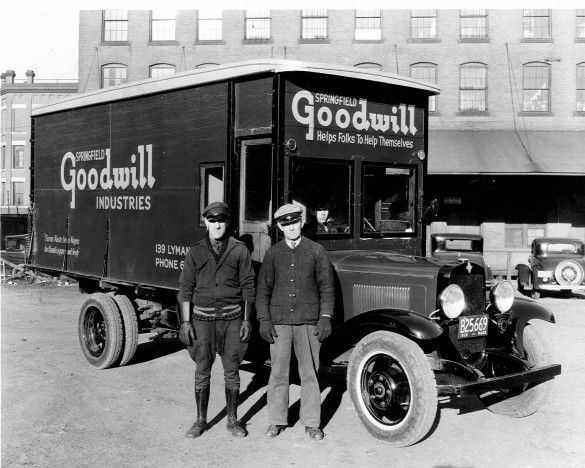Charitable Contribution Tax Tips

Telling Tips is a series of articles from local experts to help you save money, make better decisions and plan for a better future.
The IRS and the tax court have no sympathy. You are guilty until you have proven you are entitled to the deduction claimed. A receipt from Goodwill Industries or the Salvation Army stating ‘men’s boots,’ ‘ladies’ clothes,’ or ‘4 bags of clothes,’ is NOT proof.
During this season, many of you will be showing your generosity by sending checks to appealing organizations and by donating clothing. By following the rules the IRS has set forth, your contributions will be a tax deduction, which in turn means that with your tax savings, you can give more. Remember that you must file the 1040, schedule A to take advantage of your deduction.
Definition
‘A charitable contribution is a donation or gift to, or for the use of, a qualified organization. It is voluntary and is made without getting, or expecting to get, anything of equal value.’
Non-Deductible As Charitable Contributions
Money or property you give to:
- Civic leagues, social and sports clubs, labor unions, and chambers of commerce
- Foreign organizations (except certain Canadian, Israeli, and Mexican charities. For Israeli charities, for example, the deduction is limited to 25 percent of your adjusted gross income from Israeli sources.)
- Groups that are run for personal profit
- Groups whose purpose is to lobby for law changes
- Homeowners’ associations
- Individuals (including members of the clergy)
- Political groups or candidates for public office
- Cost of raffle, bingo, or lottery tickets
- Dues, fees, or bills paid to country clubs, lodges, fraternal orders, or similar groups
- Value of your time or services
- Value of blood given to a blood bank
Deductible As Charitable Contributions
Money or property you give to:
- Churches, synagogues, temples, mosques, and other religious organizations
- Federal, state, and local governments, if your contribution is solely for public purposes (for example, a gift to reduce the public debt) (Someone please let George Soros know of this option.)
- Nonprofit schools and hospitals
- Public parks and recreation facilities
- Salvation Army, Red Cross, CARE, Goodwill Industries, United Way, Boy Scouts, Girl Scouts, Boys and Girls Clubs of America, etc.
- War veterans’ groups
- Expenses paid for a student living with you, sponsored by a qualified organization
- Out-of-pocket expenses when you serve a qualified organization as a volunteer
Steps To Take
- First, if you are not familiar with the charity, you should verify that it is a qualifying organization at IRS Publication 78, Cumulative List of Organizations, and,
- Second, you need to document your contributions:
How to Prove Your Deduction
Deductions Less Than $250:
- You must obtain a signed receipt or letter showing the organization name, location, donation date, and item description.
- You must keep a written record of:
- The name and address of the organization
- The date and location of the contribution
- A reasonably detailed description of the property, which must be in good usable condition,
- The fair market value of the property at the time of contribution, and how you determined that value. (I usually suggest a very simple rule: “How much could you sell the item for at a garage sale, flea market, or on eBay?”) Make a detailed list of the items you are donating, take a picture of them, and make the charity sign and acknowledge the items and their value.
- Your cost or basis in the property
- Whether there were any terms to your donation
Deductions More Than $250 But Less Than $500
- You must meet all documentation requirements for donations of less than $250.
- You must get and keep a written acknowledgment of your contribution, with this information:
- A description of the donated property
- Whether you were compensated for your donation
- A good faith estimate of donated goods
Deductions More Than $500 But Less Than $5,000
- You must meet all documentation requirements for donations of more than $250 but less than $500.
- You must make a record of how you acquired the property, the date of acquisition, and your basis in the property.
Deductions More Than $5,000
- You must meet all documentation requirements for donations of more than $500 but less than $5,000.
- You must get a written appraisal from a qualified appraiser.
Deductions to Consider
- Driving Expenses: If you volunteer, driving costs are deductible at 14 cents a mile, plus parking fees and tolls. This includes not only to the volunteer location, but also delivery expenses for the organization. Your meals are not deductible.
- Organization Expenses: Also deductible are non-refunded out-of-picket expenses like office supplies and stamps. Of course, you still must keep the receipts, and you’ll need a letter from the charity. My suggestion is to contribute cash and let the organization buy the supplies.
- Away-From-Home Travel: If you travel to a convention or conference, out-of-picket round-trip travel expenses are a charitable contribution. Included here would be your taxi fares, transportation to/from the airport and hotel, and lodging as well as your full meal costs.
- Use Of Your Home: If you use your home to entertain for the charity, your expenses — including the food, entertainment, and all related expenses — are deductible.
Read The Regulations
The exciting reading of the tax code is provided by the Cornell University Law School.
And remember, the Internal Revenue Code is about 10 times the size of the Bible — and unlike the Bible, contains no good news.
Have a good week.
Joseph Reisman, of Joseph S. Reisman & Associates, has been serving tax prep and business accounting expertise from his Coney Island Avenue office for more than 25 years. Check out the firm’s website.




